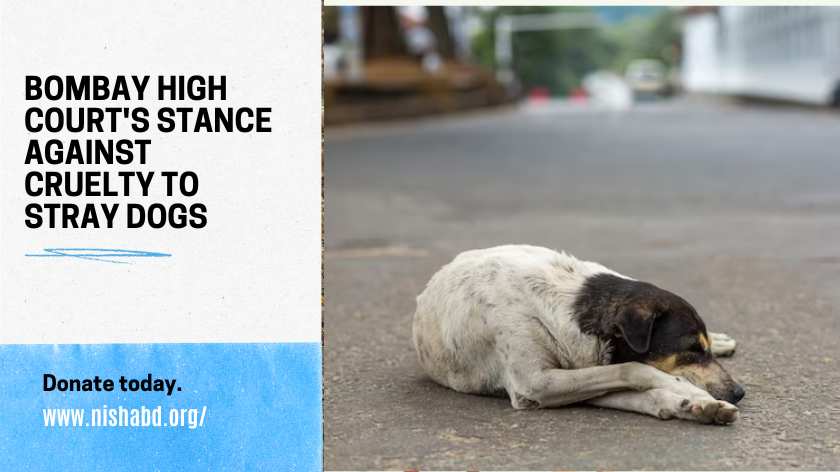Bombay High Court’s Stance Against Cruelty to Stray Dogs
In a significant move towards animal welfare, the Bombay High Court[1] has recently taken a strong stand against the mistreatment of stray dogs, particularly the alarming act of threatening them with sticks. This landmark decision emphasizes the importance of compassion towards these vulnerable creatures and underscores the need for a more humane and understanding society.
Stray Dog’s Plight
Stray dogs are an integral part of the urban landscape in many parts of India, serving as silent observers and companions in our daily lives. However, their presence often invites diverse reactions from the public. While some extend kindness and care, others resort to cruel methods, including using sticks, to shoo them away.
A Resounding Verdict: Acts of Cruelty Condemned
The recent ruling by the Bombay High Court explicitly condemns the mistreatment of stray dogs, categorizing threatening them with sticks as an act of cruelty. This decision echoes the sentiment that animals, too, deserve respect and protection under the law. The court’s intervention is a beacon of hope for animal lovers and advocates, signifying a gradual shift towards a more compassionate society.
The court’s judgment is not merely about punishing wrongdoers; it’s about instilling a sense of responsibility in the public. It is a call for greater awareness and education about the needs and behaviors of these animals, encouraging coexistence rather than conflict.
Delhi High Court’s Precedent
The Bombay High Court’s stance resonates with a similar judgment by the Delhi High Court that recognized the importance of caring for stray dogs in the national capital. The Delhi High Court’s ruling emphasized that stray dogs play a crucial part in maintaining the ecological balance and should not be treated cruelly. These legal pronouncements set a powerful precedent for other regions in India, aiming to foster a more compassionate and harmonious environment.
Insights: Stray Dog Population in India
Statistics underline the magnitude of the stray dog issue in India. As per estimates, the country is home to around 30 million stray dogs. These animals face numerous challenges, including a lack of food, shelter, and medical care. These figures highlight the urgency of addressing their welfare and the importance of legal measures to prevent cruelty.
“The greatness of a nation and its moral progress can be judged by the way its animals are treated.” – Mahatma Gandhi
Moving Towards a More Humane Future
The Bombay High Court’s ruling is not just a legal decision; it’s a reflection of society’s evolving values. It prompts us to reflect on our actions and attitudes towards animals, encouraging us to be more empathetic and understanding. It’s an invitation to foster a culture of coexistence, where humans and animals can share the same spaces with respect and harmony.
“Compassion for animals is intimately connected with goodness of character.” – Arthur Schopenhauer
The ruling also underscores the importance of education and awareness. Teaching children and adults about responsible pet ownership, the humane treatment of animals, and the significance of strays in our ecosystem can lead to a more caring society. By nurturing empathy in the younger generation, we ensure a brighter future for humans and animals.
The Bombay High Court’s judgment is pivotal in the journey towards animal welfare and creating a kinder world. It reflects a growing recognition that animals, regardless of their status, deserve our compassion and protection.
As we celebrate this stride towards justice, let us also commit to spreading awareness, advocating for change, and championing the rights of the voiceless. After all, a society’s humanity is mirrored in how it treats its most vulnerable members, including the countless stray dogs that share our lives.
Read our Article: The Right Diet For Stray Dogs

